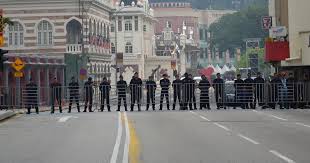Malaysia’s use of criminal laws to arrest, question, and prosecute individuals for peaceful speech and assembly has deepened in the year since Human Rights Watch published Creating a Culture of Fear: The Criminalization of Expression in Malaysia in October 2015.[1] The Malaysian authorities have moved forward with the prosecutions of many of those featured in that report, and continue to use the overly broad and vaguely worded criminal laws identified there to harass, arrest, and prosecute those critical of the government or of members of Malaysia’s royal families.
The Sedition Act and the Communications and Multimedia Act (CMA) remain the laws most frequently used against critical speech in Malaysia. Those criticizing the administration of Prime Minister Najib Razak or commenting on the government’s handling of a major corruption scandal have been particular targets. The long-running corruption scandal involving the government-owned investment fund 1 Malaysia Development Berhad (1MDB) has prompted calls from politicians, civil society activists, and commentators for Prime Minster Najib to resign from office. Rather than treating such statements as part of normal give-and-take in a democratic society, the Malaysian authorities have treated such speech as criminal, investigating those involved for sedition, “activity detrimental to parliamentary democracy,” and violations of the Communications and Multimedia Act.

